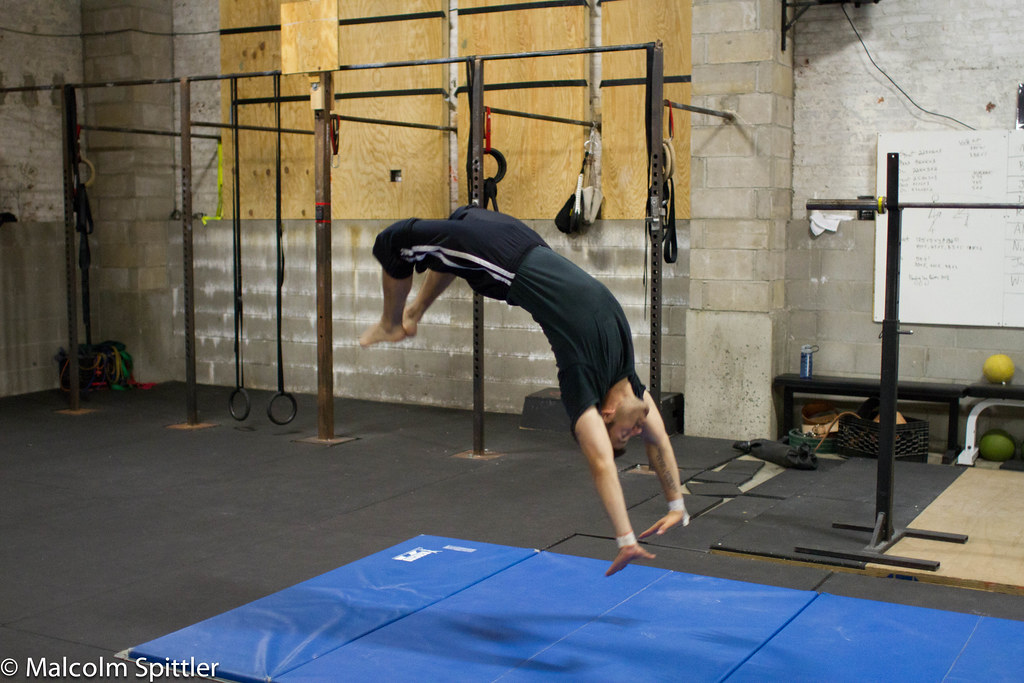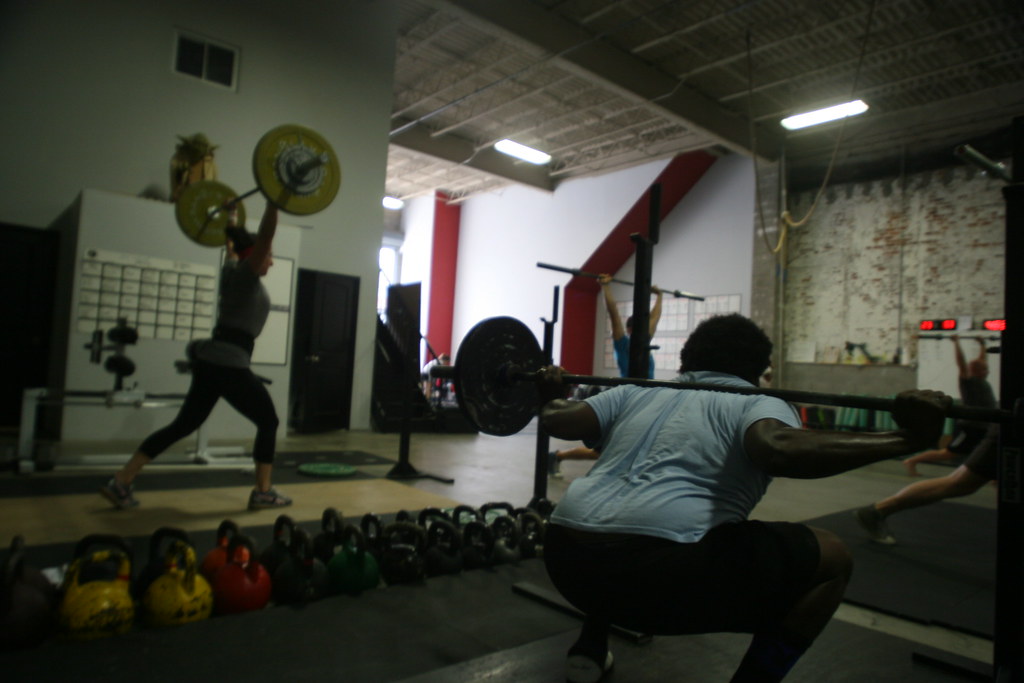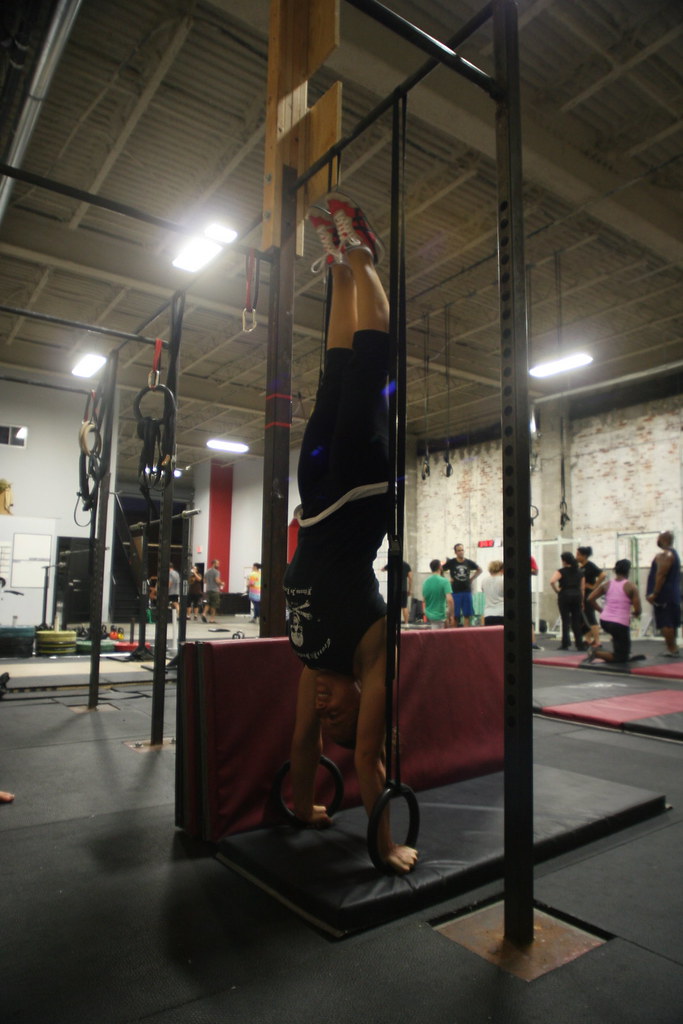Yesterday’s WOD was a doozy! Congrats to Scott L, Ryan P and Mcdowell for finishing it Rx’d under the 15:00 cap. Check out this photo album to see pictures from this WOD’s debut in 2009. How many SBK’ers can you spot?
CrossFit Total Pictures
David B (the guy with the 1,255 Total) posted some pictures from the Hybrid Athletics CrossFit Total to his Flickr page. Click here to relive the magic.
Jump Rope Progressions
Want to work on your jump rope skills? Check out these three videos from Coach Carl Paoli over at Gymnastics WOD and see if you don’t pick up some helpful pointers.
Jump Rope Progression Pt. 1
Jump Rope Progression Pt. 2
Jump Rope Progression Pt. 3
CrossFit South Brooklyn offers a unique training experience relative to most health clubs. Describe the facilitie (or facilities) where you used to train and what it was like.
________________
Annie Thorrisdottir Talks 2009, 2010 and 2011 Games CrossFit
“Scaling The WOD”
The Home Gym: Jim Agens CrossFit




